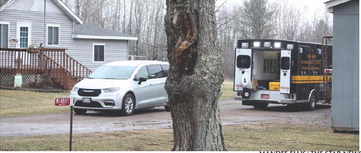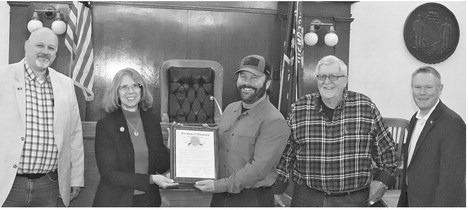DNR accepting applications for Wolf Advisory Committee
The Wisconsin Department of Natural Resources (DNR) is seeking qualified stakeholder applicants to serve on the DNR’s Wolf Advisory Committee (WAC). Applications will be accepted until Sunday, May 4, at 11:59 p.m.
The purpose of the WAC is to assist the DNR with the implementation of the Wisconsin Wolf Management Plan. Approved in 2023, the plan details the objectives, strategies and products that will help guide wolf conservation and management efforts in Wisconsin.
The WAC provides input and recommendations to the DNR on various topics, including policies, plans, season structures and harvest quotas. The committee acts as an advisory body to help identify and discuss emerging issues related to wolves in Wisconsin. In addition, the WAC provides an opportunity for public input on and awareness of the DNR’s wolf conservation and management activities.
The WAC will be comprised of relevant DNR staff, representatives from government agencies/entities, the Wisconsin Conservation Congress, Wisconsin’s Ojibwe tribes and up to 10 stakeholder seats. The stakeholder seats are structured to represent a broad and balanced spectrum of interest groups and viewpoints. These seats will be filled via a competitive application process and are subject to three-year term limits.
The 10 stakeholder seats will be divided evenly among five stakeholder categories (two each). Full descriptions of the categories and requirements to be considered for a category are listed on the DNR’s Wolves in Wisconsin webpage (https://dnr.wisconsin.gov/topic/ WildlifeHabitat/wolf) under the Advisory Committee tab.
The five stakeholder groups are hunting and trapping, agricultural and ranching, environmental, conservation science and education and at-large, unaffiliated.
Hunting and trapping interests are defined as organizations whose mission includes ensuring the hunting and trapping heritage in Wisconsin remains strong while embracing changing societal values, specifically promoting the use of regulated harvest as a primary tool to manage wildlife species.
Agricultural and ranching interests are defined as organizations whose mission includes ensuring the rural agricultural or ranching lifestyle in Wisconsin remains strong, specifically promoting the use and advancement of a wide array of abatement measures to effectively resolve wolf conflicts.
Environmental interests are defined as organizations whose mission includes ensuring the sustainability of wildlife and wildlife habitats in Wisconsin, specifically promoting wolf-related coexistence as part of maintaining healthy ecosystems and natural landscapes.
Conservation science and education interests are defined as organizations whose mission includes the conservation of wildlife in Wisconsin through sciencebased management and educational outreach, specifically promoting sound science in wildlife management decision-making and sharing science-based public educational outreach on wolves.
At-large, unaffiliated interests include any Wisconsin residents who are generally interested in and/or affected by wolves and wolf management (as detailed on their application and determined by the department). It is expected these members would provide viewpoints that may not be captured by other organizations representing specific interests.
Being a committee member is a privilege and requires significant time and work commitment. Members will be expected to attend all scheduled meetings and come prepared to discuss relevant topics by reviewing supporting materials and the agenda before each meeting. They will also be expected to work collaboratively with those whose views may significantly differ from their own.
Preference will be given to candidates who demonstrate the ability to engage in constructive dialogue regarding wolf conservation and management, recognize the complexity of issues surrounding wolf conservation and management, and genuinely work toward mutual understanding and durable management solutions.
More information, including the committee’s charter, an FAQ document, blank applications and the link to apply, can be found on the DNR’s Wolves in Wisconsin webpage under the Advisory Committee tab.



